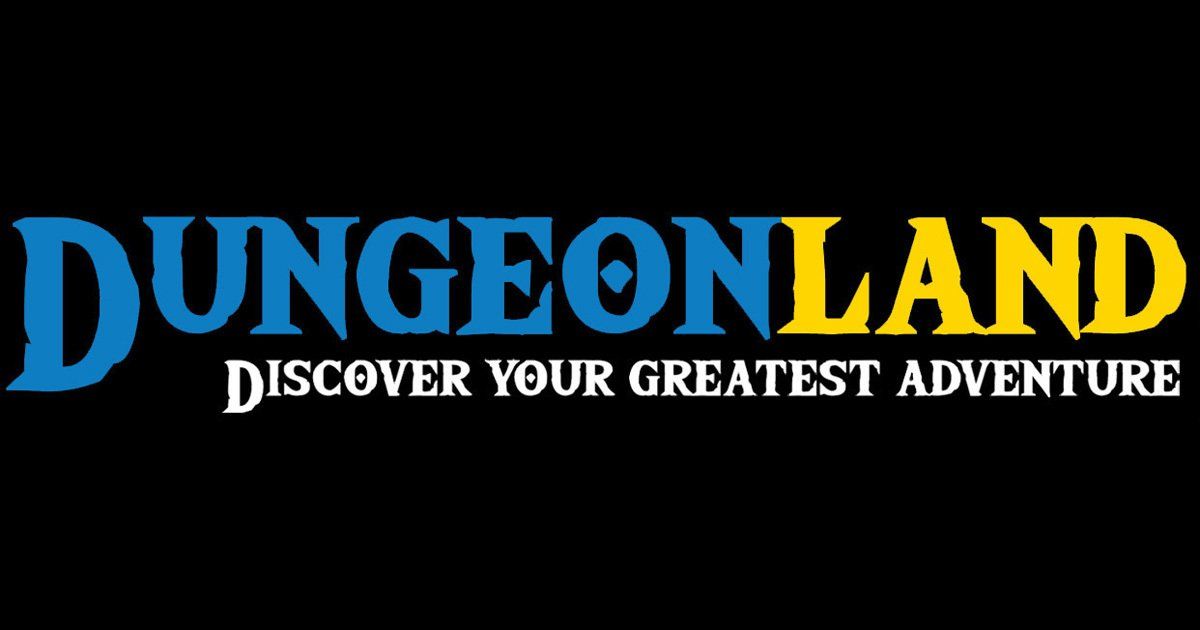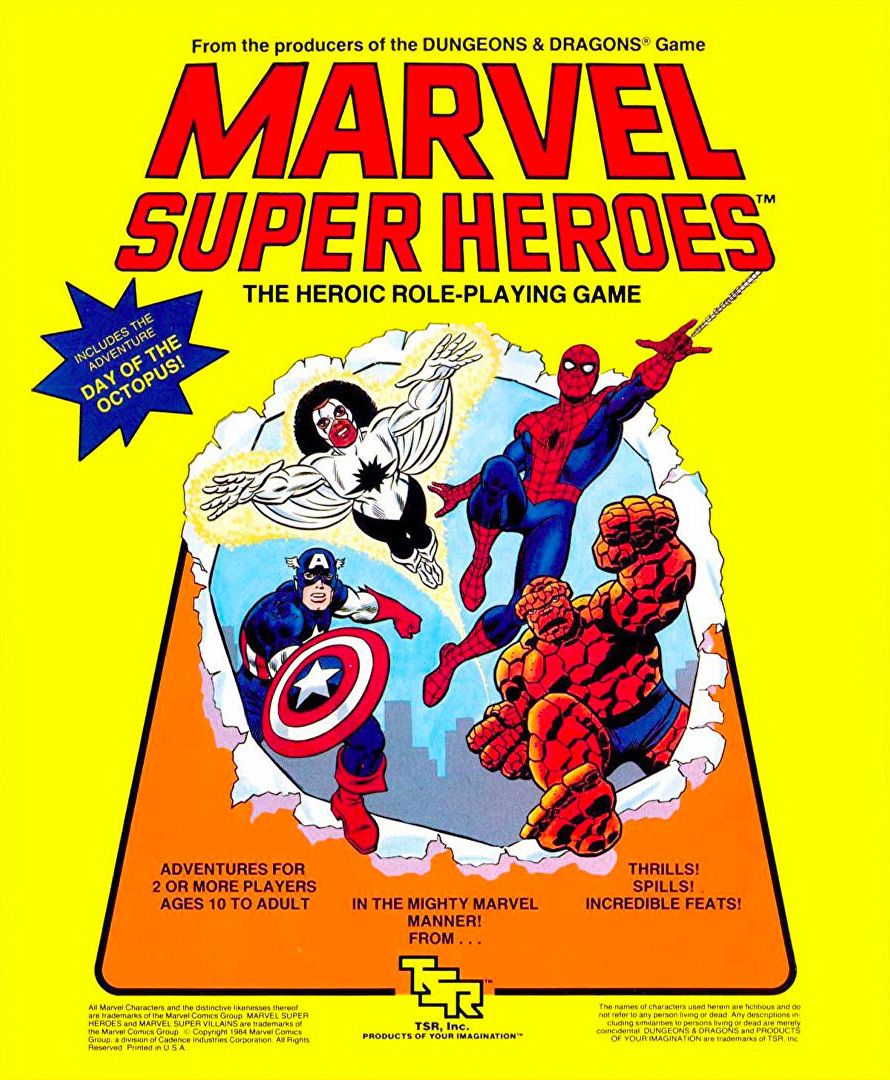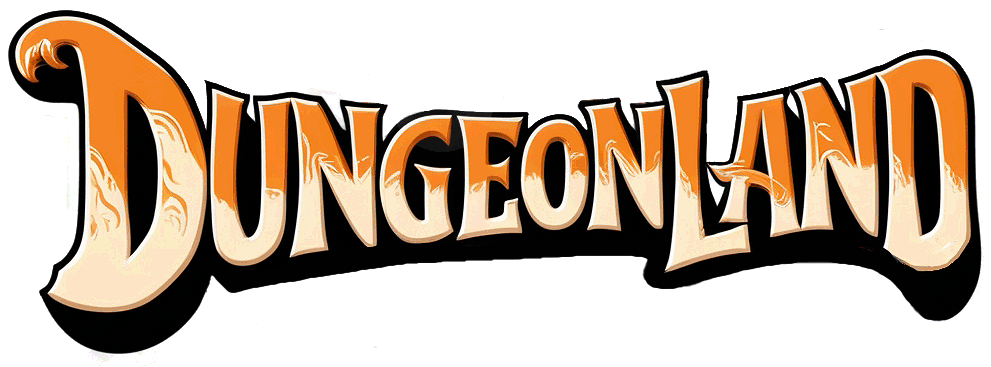Ep 2: Marvel Super Heroes

In episode two we are going to talk about our favourite tabletop RPG of all time, the amazing, and remarkable, Marvel Super Heroes Basic Set. From the moment we first played it we were hooked on the 80's world of Marvel Super Heroes, its villains, and incredible plots.
My name is Mark. I am one half of Dungeonland. And at around eleven years old I was reading the UK run of the Marvel Secret Wars comic book. A story about an alien that comes from beyond and assembles a battle planet made out of fragments of many other planets for the mightiest heroes and villains of Earth to do battle on. The Beyonder, as he was called, was childlike and had no concept of good and evil. Though he had limitless power to give the winner, good or evil, whatever it desired. What followed was week after week of British comics, reprinted from their American counterparts, with the likes of Hulk, Spider-Man, and Captain America, in battle with Doctor Octopus, Ultron, the Lizard and many more.
For an eleven-year-old child this was pretty much the most exciting comics had ever been. A whole bunch of well-known heroes facing off with a whole bunch of infamous villains in one big, massive scrap in the ultimate arena. I had never seen so much superhero combat before, and so many heroes and villains on one page all at the same time. It inspired me to draw my own superhero battles with my friends at school at the time. Secret Wars was also the platform that gave me an interest in Marvel, enough so, that when I stumbled across that Marvel Super Heroes Basic Set in Games Workshop, I had to pick it up and see what it was all about.
At this point, I had been playing Dungeons & Dragons Basic with my school friends already and so the TSR brand was already becoming familiar to me. I knew I liked what they did. And so, seeing that the Marvel Super Heroes Basic Set was another TSR product I was totally invested. What was different though, was that my Dungeons & Dragons friends had no interest in the product. They liked their fantasy, and these superheroes didn't appeal to them. However, I had friends that were into comic books and were really into the idea of playing the Marvel Super Heroes RPG, despite that they had never shown an interest in Dungeons & Dragons. So, I ended up in two quite different groups at the time. I had my Marvel RPG friends, and my D&D RPG friends. Which is not unlike today, I still come across similar situations with either fantasy or superhero RPG groups. I've never been sure why they don't crossover for many others as they do for me.
So, Marvel was very different to D&D in its ruleset. We had two rulebooks, a map, adventure, dice, character cards and counters in the original basic box set. What was striking was the system. Now often referred to as the FASERIP system. Characters were made up from Fighting, Agility, Strength, Endurance, Reason, Intuition, and Psyche. The unusual part though, and what was so comic book about the system, was that you didn't rely on numbers like in D&D for those statistics. You had words that translated as numbers. For example, the average non-powered human would be Typical in ability. Typical represented six. Above average and you were Good, which represented ten. And the peak of human ability was Excellent, which represented twenty. These configurations continued upward, and the more powerful characters had more points represented by more powerful sounding words. So, for example, Daredevil, who is a superhero but still human, may have Good strength, worth ten points of damage on a strike. But the Thing of the Fantastic Four, his strength was Monstrous, a whopping seventy-five points. What was great about this system was that as a child it was easy to memorize the words. If you looked at say Spider-Man for example, and it said Amazing agility, you knew as a kid right away that was fifty points.
The game used only a pair of percentile dice, very different to D&D again, and these were rolled on a table where you would compare the ability level, like Amazing, or Excellent, and so on, against the dice roll to see your measure of success. Ultimately your dice roll would land in white (failure), green or yellow (successes), or red (critical). Yep, way back in the 80's, the Marvel RPG was already doing critical hits! What you needed to roll to get into the various colours depended on your ability rank. For example, the Thing has Monstrous strength, and needs to bend an alien steel bar to make an escape. You compare the rank of the Thing's strength to the rank of the strength of steel. If he's two ranks higher, his success is automatic, a rank above, he needs green, the same rank, he needs to roll in yellow, and if the steel is stronger, he needs red, unless it is two ranks higher in which case he is not strong enough. Actual steel, I think was a rank below the Thing, so he would likely bend it without needing to roll too high. For Daredevil though, he simply could not bend it and would have to use his other powers to help himself escape.
It was a brilliant and simple system powered by the use of super powered words. Great for a young child or an adult to play. Inside the box we had a bunch of hero cards so we could already start playing with the Fantastic Four, or the likes of Spider-Man, Wolverine, Captain America, and Captain Marvel. The included adventure, the Day of the Octopus, was a simple affair featuring Doctor Octopus as the main antagonist and was a fun frolic to play through. And if you wanted, you could of course create your own superhero to go on adventures with. I had a few at the time, Cats Paw and Super Heatwave. And I remember everything about them still to this day!
The Marvel Super Heroes RPG was expanded on a lot by TSR. Probably only second to D&D in terms of just how much came out for it at the time. There were individual module adventures, books on super groups like the Avengers and X-Men, and the usual screens and counter products. We even eventually got an ambitious Secret Wars module based on the comic book itself including a roster of all the characters, maps of the locations, and a book of the full scenario to play through. Eventually, much like D&D, we got an Advanced box set, and later revised editions. The Marvel Super Heroes RPG was in publication for quite a few years. Eventually though I guess the demise of TSR, and even the fact that Marvel themselves faced bankruptcy later on, may have all contributed to its end. There was a second Marvel RPG released, but for me, it just wasn't the same. Maybe it was the game, maybe the timing, but I had no interest at the time. It certainly seems to be the original that is fondly remembered still among its now older fans.
There was an innocence to comic books in the 1980's that made them quite different to the comic books of today. If you enjoyed that time period, or just want to go back and investigate it, then I would still recommend finding yourself a copy of the old Marvel Basic Set and giving it a go. It's easy to pick up and play and still a lot of fun. Superheroes in the 80's were less complex than they are now and the emphasis very much on fun. So, track yourself down a copy and give the old-school world of Marvel a go one day. I promise you, it will be excellent, or maybe amazing even.

















